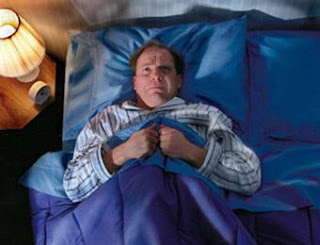Have you experience difficulty falling asleep? Then light therapy is probably a good solution for you. The blue light therapy is a great non-drug method for natural insomnia treatment. It works to reduce stress and alleviate restlessness, anxiety, tension, seasonal affective disorder and even depression. Another good thing is that this form of therapy can be done in the comfort of your own home.
The light therapy helps correct the body's circadian rhythms and slow down the body's release of melatonin. These changes can then help the body deal with insomnia and other biochemical issues.
Sunlight regulates our circadian rhythm or body clock. Sleep experts say we need at least 30 minutes of exposure to sunlight every day, preferably in the morning or shortly after waking up, to keep us in natural sleep and wake cycle.
As we age, the lens in the eye thickens and the pupil shrinks. This reduces the amount of light that passes through to the retina - the light-sensitive tissue at the back of the eye that transmits information to the brain about whether it is night or day. As a result, the signals which the brain relies on to keep the circadian rhythm properly synchronised fail to get through. This disrupts the sleep and wake cycle, which is why we can become drowsy during the day and, consequently, unable to sleep well at night.
In the late Nineties, researchers discovered that blue light appeared to combat this daytime drowsiness by tricking the brain into thinking it is a natural sunlight and sending signals to keep the body alert. When the blue light fades or is switched off, the brain interprets this as the onset of night. Brain then commands to increase production of melatonin, a hormone produced by the pineal gland that helps regulate our sleep.
The blue light therapy is safe for all ages. It is also great for travelers that change time zones often. When time zones are crossed, the blue light encourages the adjustment of the circadian rhythm, which is the body's biological clock.
An intriguing finding was recently reported that the implementation of blue-colored streetlights has reduced both crime and suicides:
- Glasgow, Scotland, introduced blue street lighting to improve the city’s landscape in 2000. Afterward, the number of crimes in areas illuminated in blue noticeably decreased.
- The Nara, Japan, prefectural police set up blue street lights in 2005, and found the number of crimes decreased by about 9 percent in blue-illuminated neighborhoods. Many other areas nationwide have followed it.
















